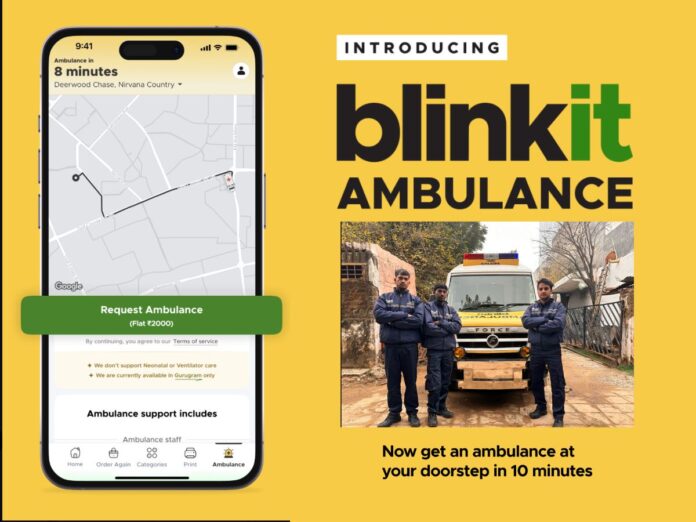New Delhi/Gurugram,3rd Jan. Blinkit, widely recognized for its swift grocery delivery services, has ventured into emergency healthcare with the launch of a 10-minute ambulance service in Gurugram. Starting with five ambulances equipped with critical tools like oxygen cylinders and automated external defibrillators (AEDs), this initiative aims to address the often-critical delay in emergency response times.

The move has sparked diverse reactions. Supporters hail it as a groundbreaking initiative, highlighting the potential to save lives by providing faster access to life-saving care. In urban areas where traffic congestion often hampers emergency services, a quicker response time could make a substantial difference in patient outcomes.
However, the initiative has not been without its detractors. Critics question Blinkit’s motivations, speculating whether the service is more about brand enhancement than addressing systemic healthcare gaps. Concerns have also been raised about the service’s scope, noting that while it may improve response times, it does little to address broader issues such as the quality and accessibility of healthcare, particularly for underserved populations.
This development has also reignited discussions about the role of private companies in public service domains. Some suggest that partnerships with established healthcare providers and government agencies could amplify the impact, ensuring a more integrated and equitable approach to emergency medical services.
While skepticism lingers, Blinkit’s effort to step into the realm of emergency services has been largely viewed as a commendable move to innovate within urban healthcare. Whether it sets a new benchmark or remains a strategic experiment will depend on its execution and scalability in the months to come.




